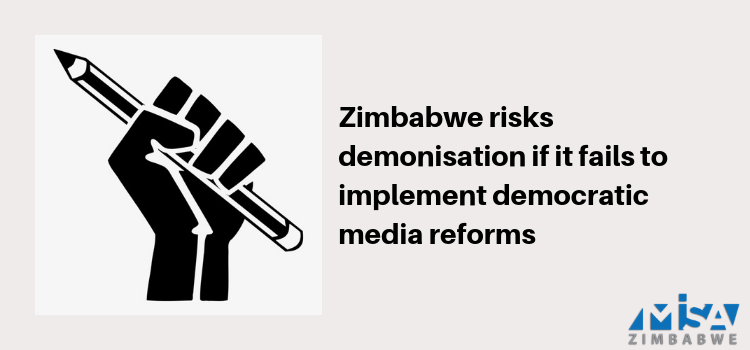Zimbabwean lawyer Chris Mhike says Zimbabwe risks continued demonisation by the international community as a country that does not respect media rights if it fails to implement democratic media law reforms.
Mhike expressed concern that some of the inputs by the media and civil society had not been included in the now gazetted Freedom of Information Bill as part of the processes of repealing the condemned Access to Information and Protection of Privacy Act (AIPPA).

Chris Mhike making a point on the differences between Civil and Criminal Law
This, he said, puts the country at the risk of “continued demonisation” as a country that does not respect journalistic rights. “A good law is one that captures the aspirations … of those affected by that law of which the media is one such stakeholder including the public at large,” said Mhike.
He was speaking during a meeting on 12 July 2019 organised by MISA Zimbabwe for editors and senior journalists based in Zimbabwe’s second city of Bulawayo to sensitise them on the proposed new media laws.
Mhike outlined areas of concern, deficiencies and shortcomings as well as some of the positive provisions contained in the gazetted Freedom of Information Bill.
For further details on the issues at hand, we have a Summary comparison of AIPPA and the gazetted Freedom of Information Bill.
He also briefed participants on the provisions of the Draft Zimbabwe Media Commission Bill and Draft Broadcasting Services Amendment Bill.
He said the 20% cap on foreign investment in the broadcasting sector as proposed under the Broadcasting Services Amendment Bill undermines media growth and development. The Zimbabwe Media Commission Bill also has aspects that criminalise the practice of journalism.
“We need to ensure that criminalisation of the media profession is eliminated,” said Mhike.
He urged editors to create spaces in their publications to allow for enriching discussions and debates on the proposed laws.
Meanwhile, earlier on the same day, MISA Zimbabwe held a Know Your Rights workshop for Bulawayo-based journalists to sensitise them on their rights in the context of the Constitution, existing laws, regulations and the difference between civil and criminal law.









